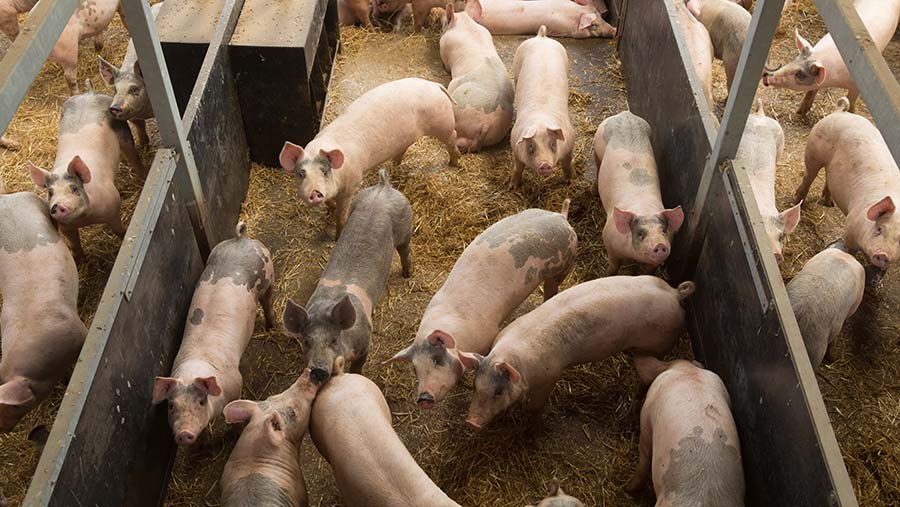Germany pins hope on regional resumption of pigmeat exports
 © Tim Scrivener
© Tim Scrivener German officials are hoping pigmeat exports to Asian countries could resume on a regional basis, despite the growing number of African swine fever (ASF) cases in wild boar.
Pig prices across Europe dropped following China’s ban on German pigmeat on 12 September, two days after a positive ASF test on a wild boar carcass near the eastern border with Poland.
See also: How to avoid transmission of the deadly ASF virus to pig herds
The move was swiftly followed by bans in other Asian countries, including South Korea, Japan and Singapore. Germany was the EU’s biggest pigmeat exporter to Asia, shipping 200,000t to China alone in the first quarter of 2020.
Effect on prices
In the first week after the export ban was announced the GB EU-spec SPP fell by 1.15p/kg from 160.9p/kg to 159.80p/kg.
It has since fallen by another 2p/kg to 157.64p/kg for the week ending 17 October.
This puts it less than a penny above the same week last year, as the gap continues to tighten, the AHDB said.
With much of the UK’s sow meat exported to Germany, that trade has suffered a huge drop in price, falling another 6p/kg to average 33.4p/kg liveweight in the week to 17 October. This is less than half its value a year ago, when the price averaged 71.6p/kg.
Trade has been further hampered by slow throughputs imposed on German abattoirs by the Covid-19 pandemic, from both staff shortages and new distancing requirements in workplaces.
Regionalisation
However, German agriculture minister Julia Klöckner said she was hopeful export trade could resume, despite nine more ASF cases in wild boar on 21 October, bringing the total to 80.
Ms Klöckner is pressing the case for a return to trade from areas in Germany where no cases of the disease have been found.
According to Reuters news agency, Ms Klöckner said she had received the first cautious, positive signals from some of the Asian countries, notably Japan.
But she acknowledged there was still some way to go in negotiations. Neither the EU Commission nor an EU member state had yet been able to reach a regionalisation deal with Asia, Ms Klöckner said.
